research
Book
- Mass Polarization across Time and SpaceIsaac D. MehlhaffCambridge University Press, 2025
Mass polarization is one of the defining features of politics in the twenty-first century, but efforts to understand its causes and effects are often hindered by empirical challenges related to measurement and data availability. To address these challenges and provide a common standard of analysis for researchers, this Element presents the Polarization in Comparative Attitudes Project (PolarCAP). PolarCAP clearly defines polarization as a property of group relations and uses a Bayesian measurement model to estimate smooth panels of ideological and affective polarization across ninety-two countries and forty-nine years. The author uses these data to provide a descriptive account of mass polarization across time and space. They further show how PolarCAP facilitates substantive inference by applying it to three sets of variables often hypothesized as causes or consequences of polarization: institutional design, economic crisis, and democracy. Open-source software makes PolarCAP easily accessible to scholars and practitioners.
@book{Mehlhaffbook, title = {Mass {{Polarization}} across {{Time}} and {{Space}}}, author = {Mehlhaff, Isaac D.}, year = {2025}, publisher = {{Cambridge University Press}}, location = {{New York}}, doi = {https://doi.org/10.1017/9781009350662}, html_book = {https://doi.org/10.1017/9781009350662}, software = {https://imehlhaff.github.io/PolarCAP/}, }
Peer-Reviewed
Journal Articles
-
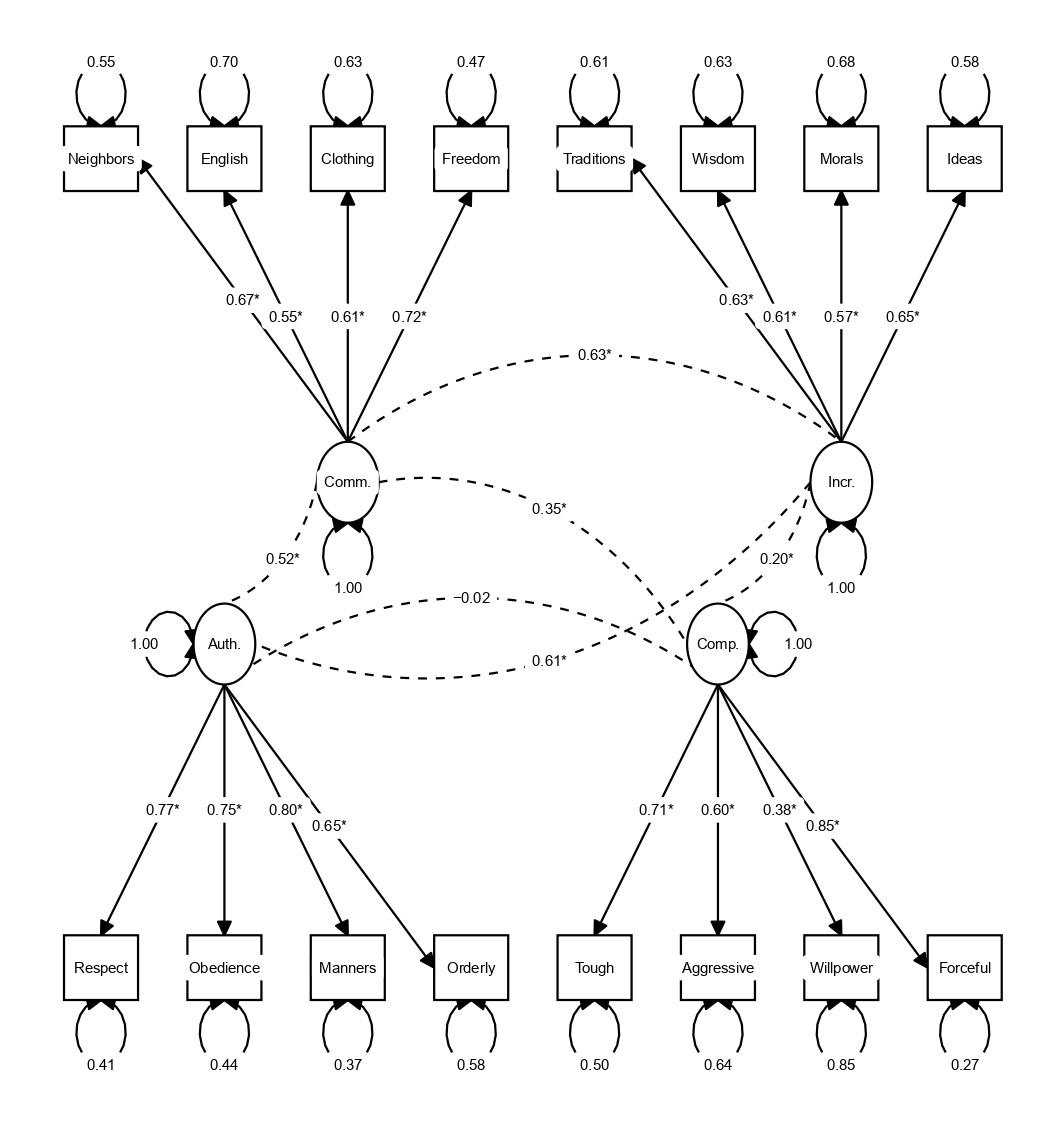 More Than a Partisan Pandemic: Worldview and COVID-19 Response
More Than a Partisan Pandemic: Worldview and COVID-19 Response
in the United StatesMarc J. Hetherington, Andrew M. Engelhardt, and Isaac D. MehlhaffAdvances in Political Psychology, forthcomingAs the COVID-19 pandemic unfolded, public responses increasingly divided along political lines: Democrats tended to support policies and behaviors recommended by public health experts and Republicans tended to oppose them. We argue that exclusively party-based explanations for these patterns are incomplete. Instead, we call attention to people’s philosophy about life—their “worldview”— as an important force behind their pandemic responses. We posit that citizens use beliefs derived from interactions with their everyday life to inform their affinities and preferences when analogous matters enter the political realm. Using original cross-sectional and panel survey data gathered over the course of the pandemic, we theorize and empirically validate a multidimensional measure of worldview. We show that worldview is a coherent, belief-system-like entity that remained stable during the pandemic, suggesting its centrality in mass responses to uncertain and novel stimuli. We then show that even before strong party cues emerged, worldview structured Americans’ reactions to COVID-19 and constrained the positions parties could take. Worldview’s influence was both direct and indirect, channeled through its relationship with partisan preference. While partisanship is a potent force in political belief systems, much of its effect, we suggest, comes from its association with people’s general philosophy about life.
@article{HetheringtonAPP, title = {More {{Than}} a {{Partisan Pandemic}}: {{Worldview}} and {{COVID-19 Response}}<br>in the {{United States}}}, author = {Hetherington, Marc J. and Engelhardt, Andrew M. and Mehlhaff, Isaac D.}, year = {forthcoming}, journal = {Advances in Political Psychology}, } -
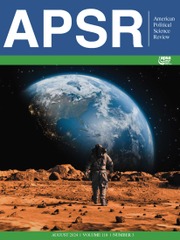 A Group-Based Approach to Measuring PolarizationIsaac D. MehlhaffAmerican Political Science Review, Aug 2024
A Group-Based Approach to Measuring PolarizationIsaac D. MehlhaffAmerican Political Science Review, Aug 2024Despite polarization’s growing importance in social science, its quantitative measurement has lagged behind its conceptual development. Political and social polarization are group-based phenomena characterized by intergroup heterogeneity and intragroup homogeneity, but existing measures capture only one of these features or make it difficult to compare across cases or over time. To bring the concept and measurement of polarization into closer alignment, I introduce the cluster-polarization coefficient (CPC), a measure of multimodality that allows scholars to incorporate multiple variables and compare across contexts with varying numbers of parties or social groups. Three applications to elite and mass polarization demonstrate that the CPC returns substantively sensible results, and an open-source software package implements the measure.
@article{MehlhaffAPSR, title = {A {{Group-Based Approach}} to {{Measuring Polarization}}}, author = {Mehlhaff, Isaac D.}, year = {2024}, month = aug, journal = {American Political Science Review}, volume = {118}, number = {3}, pages = {1518--1526}, doi = {https://doi.org/10.1017/S0003055423001041}, software = {https://imehlhaff.github.io/CPC/}, } -
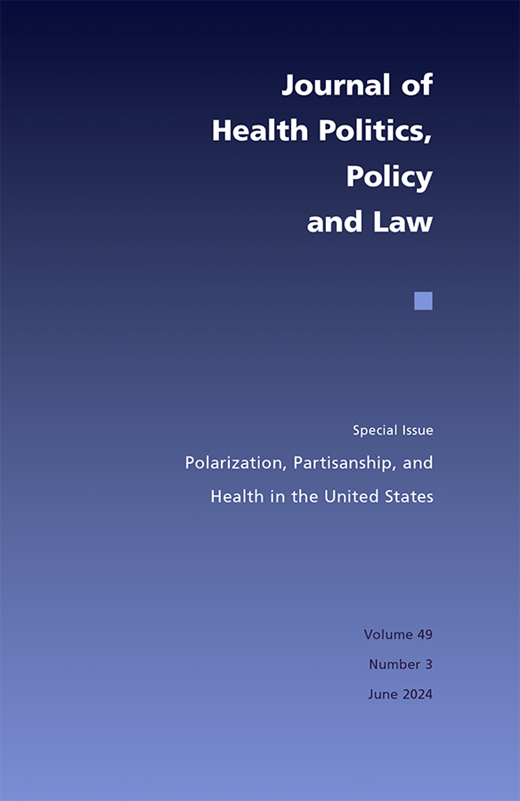 Partisanship and the Pandemic: How and Why Americans Followed Party Cues on COVID-19Isaac D. Mehlhaff, Matías C. Tarillo, Ayelén Vanegas, and Marc J. HetheringtonJournal of Health Politics, Policy, and Law, Jun 2024
Partisanship and the Pandemic: How and Why Americans Followed Party Cues on COVID-19Isaac D. Mehlhaff, Matías C. Tarillo, Ayelén Vanegas, and Marc J. HetheringtonJournal of Health Politics, Policy, and Law, Jun 2024The United States underperformed its potential in responding to the COVID-19 pandemic. Using original survey data from April 2020 to March 2022, we show that political partisanship may have contributed to this inconsistent response by distinguishing elites and citizens who took the crisis seriously from those who did not. This division was not inevitable; when the crisis began, Democrats and Republicans differed little in their viewpoints and actions. However, partisans increasingly diverged when their preferred political leaders provided them with opposing cues. We outline developments in party politics over the last half-century that contributed to partisan division on COVID-19, most centrally an anti-expertise bias among Republicans. Accordingly, Republicans’ support for mitigation measures, perception of severity of COVID-19, and support for vaccines gradually decreased after the initial outbreak. Partisan differences also showed up at the state level; Trump’s vote share in 2016 was negatively associated with mask use and positively associated with COVID-19 infections. Diverging elite cues provided fertile ground for the partisan pandemic, underscoring the importance of political accountability, even in an era of polarization.
@article{MehlhaffJHPPL, title = {Partisanship and the {{Pandemic}}: {{How}} and {{Why Americans Followed Party Cues}} on {{COVID-19}}}, author = {Mehlhaff, Isaac D. and Tarillo, Mat{\'i}as C. and Vanegas, Ayel{\'e}n and Hetherington, Marc J.}, year = {2024}, month = jun, journal = {Journal of Health Politics, Policy, and Law}, volume = {49}, number = {3}, pages = {351--374}, doi = {https://doi.org/10.1215/03616878-11066336}, } -
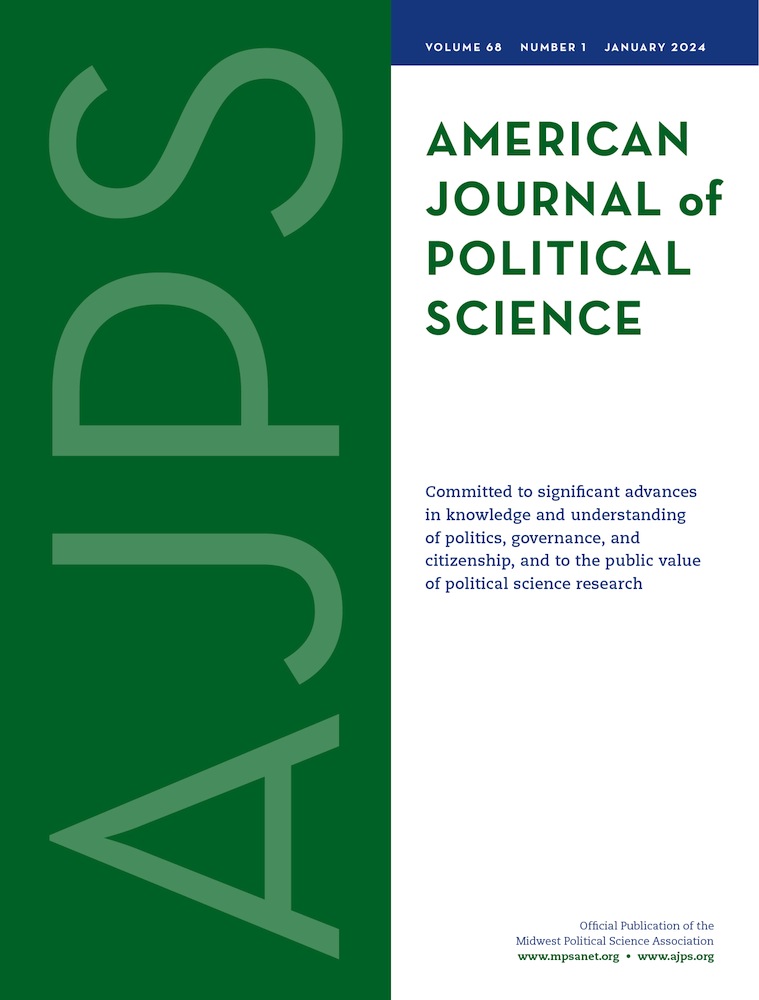 Where Motivated Reasoning Withers and Looms Large: Fear and Partisan Reactions to the COVID-19 PandemicIsaac D. Mehlhaff, Timothy J. Ryan, Marc J. Hetherington, and Michael B. MacKuenAmerican Journal of Political Science, Jan 2024
Where Motivated Reasoning Withers and Looms Large: Fear and Partisan Reactions to the COVID-19 PandemicIsaac D. Mehlhaff, Timothy J. Ryan, Marc J. Hetherington, and Michael B. MacKuenAmerican Journal of Political Science, Jan 2024Contemporary American politics has been largely characterized by hyper-partisanship and polarization, with partisan motivated reasoning a thematic concern. Theories of emotions in politics suggest that anxiety might interrupt partisan heuristics and encourage citizens to reason more evenhandedly—but in what domains and to what extent? We use original panel data to assess how anxiety about becoming seriously ill from Covid-19 interacted with partisan attachments to shape political judgment during the Covid-19 pandemic. The structure of our data allows us to assess large-scale implications of politically relevant emotions in ways that so far have not been possible. We find large effects on policy attitudes: Republicans who were afraid of getting sick rejected signals from co-partisan leaders by supporting mask mandates and the like. Effects on vote choice for Republicans were muted in comparison, but fear’s large effect on independents may have been pivotal.
@article{MehlhaffAJPS, title = {Where {{Motivated Reasoning Withers}} and {{Looms Large}}: {{Fear}} and {{Partisan Reactions}} to the {{COVID-19 Pandemic}}}, author = {Mehlhaff, Isaac D. and Ryan, Timothy J. and Hetherington, Marc J. and MacKuen, Michael B.}, year = {2024}, month = jan, journal = {American Journal of Political Science}, volume = {68}, number = {1}, pages = {5--23}, doi = {https://doi.org/10.1111/ajps.12808}, } -
 Integrating Classroom and Community with Undergraduate Civically Engaged ResearchSam Schmitt, Isaac D. Mehlhaff, and Emily Cottle OmmundsenPS: Political Science & Politics, Oct 2023
Integrating Classroom and Community with Undergraduate Civically Engaged ResearchSam Schmitt, Isaac D. Mehlhaff, and Emily Cottle OmmundsenPS: Political Science & Politics, Oct 2023In addition to interest in undergraduate research, political science increasingly recognizes the value of civically engaged research for various educational, professional, and civic outcomes. With limited time and steep tradeoffs, instructors must find ways to cleverly combine undergraduate research experiences with the broader normative civic education responsibilities of political science and higher education. This article presents a course design that allows instructors to leverage their classroom for both civic education and undergraduate research without the need for previously developed community partnerships that are common to most engaged research and learning. Our approach brings together undergraduate research and community engagement through course design.
@article{SchmittPS, title = {Integrating {{Classroom}} and {{Community}} with {{Undergraduate Civically Engaged Research}}}, author = {Schmitt, Sam and Mehlhaff, Isaac D. and Ommundsen, Emily Cottle}, year = {2023}, month = oct, journal = {PS: Political Science \& Politics}, volume = {56}, number = {4}, pages = {469--474}, doi = {https://doi.org/10.1017/S1049096523000392}, }
Peer-Reviewed
Conference
Proceedings
-
 Multi-Task Learning Improves Performance in Deep Argument Mining ModelsAmirhossein Farzam, Shashank Shekhar, Isaac D. Mehlhaff, and Marco MorucciProceedings of the 11th Workshop on Argument Mining, Aug 2024
Multi-Task Learning Improves Performance in Deep Argument Mining ModelsAmirhossein Farzam, Shashank Shekhar, Isaac D. Mehlhaff, and Marco MorucciProceedings of the 11th Workshop on Argument Mining, Aug 2024The successful analysis of argumentative techniques from user-generated text is central to many downstream tasks such as political and market analysis. Recent argument mining tools use state-of-the-art deep learning methods to extract and annotate argumentative techniques from various online text corpora, however each task is treated as separate and different bespoke models are fine-tuned for each dataset. We show that different argument mining tasks share common semantic and logical structure by implementing a multi-task approach to argument mining that achieves better performance than state-of-the-art methods for the same problems. Our model builds a shared representation of the input text that is common to all tasks and exploits similarities between tasks in order to further boost performance via parameter-sharing. Our results are important for argument mining as they show that different tasks share substantial similarities and suggest a holistic approach to the extraction of argumentative techniques from text.
@inproceedings{Farzammultitask, title = {Multi-{{Task Learning Improves Performance}} in {{Deep Argument Mining Models}}}, author = {Farzam, Amirhossein and Shekhar, Shashank and Mehlhaff, Isaac D. and Morucci, Marco}, year = {2024}, month = aug, booktitle = {Proceedings of the 11th Workshop on Argument Mining}, publisher = {Association for Computational Linguistics}, address = {Bangkok, Thailand}, pages = {46-58}, }
Under Review
- Signed Forecast Errors in Pre-Election Media Polls: A Mainly Political StoryRobert C. Luskin, Daron R. Shaw, Marc J. Hetherington, and Isaac D. Mehlhaff
Pre-election polling is commonly thought to underestimate Republican support, and scholarly analyses of this bias have mainly focused on the mechanical features of the polls themselves. We examine signed forecast errors of state-level pre-election media polls from 1990-2020. Modeling distinct data-generating processes for poll responses and vote shares, we argue that signed forecast error is largely driven by campaign dynamics, characteristics of the electorate, and electoral conditions, all of which are shaped over time by changes in the American political atmosphere. Underlying these influences is a pattern of partisan straying and homecoming, in which voters consider departing from their typical party identity throughout the campaign but ultimately revert to habit in the voting booth. When judging polling performance, scholars and practitioners should consider the impact of broader electoral and campaign context rather than focusing solely on methodological refinements.
@unpublished{Luskinpolling, title = {Signed {{Forecast Errors}} in {{Pre-Election Media Polls}}: {{A Mainly Political Story}}}, author = {Luskin, Robert C. and Shaw, Daron R. and Hetherington, Marc J. and Mehlhaff, Isaac D.}, }
Working Papers
-
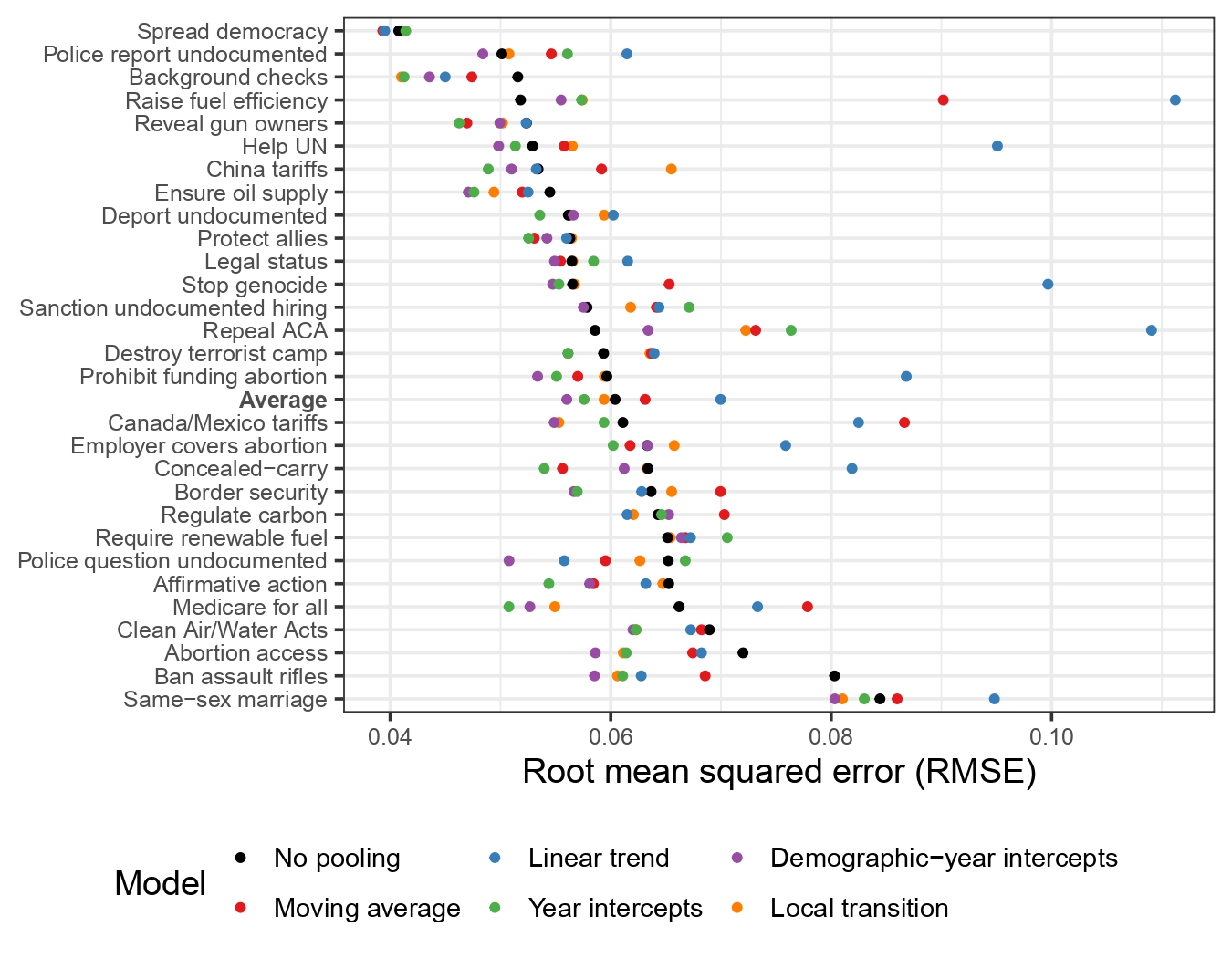 Leveraging Time Series Information to Improve Small-Area EstimationIsaac D. Mehlhaff
Leveraging Time Series Information to Improve Small-Area EstimationIsaac D. MehlhaffMultilevel regression with poststratification (MRP) is by now the method of choice for estimating subnational quantities of interest. Scholars have proposed several methods of employing MRP on time series data, but there is limited understanding of which model specifications are most reliable under different conditions. I evaluate the effectiveness of six dynamic MRP models in estimating subnational public opinion over time. Evidence from twenty-nine policy issues reveals substantial variation in model performance, indicating the importance of careful model selection. Monte Carlo simulations using synthetic survey data show the accuracy and efficiency of each model can vary with temporal volatility in state-level opinion, the number of observed time periods, and sample size. When an appropriate model is used, dynamic MRP offers a promising method both for estimating subnational time series and for improving estimates in a single time period. I conclude with recommendations for model selection.
@misc{MehlhaffMRP, title = {Leveraging {{Time Series Information}} to {{Improve Small-Area Estimation}}}, author = {Mehlhaff, Isaac D.}, } - Mass Polarization and Democratic Decline: Evidence from a Half-Century of Public OpinionIsaac D. Mehlhaff
An antagonistic political culture has long been thought to pose a threat to liberal democracy. More recently, many scholars have proposed a link between political polarization and democratic breakdown, yet causal evidence for this prominent theory remains thin. I present the first broadly comparative analysis of the relationship between mass polarization and democratic backsliding, the modal form of autocratic reversion in the post-third wave era. Panel estimates of ideological and affective polarization from as many as ninety countries and forty-nine years indicate that both ideological and affective polarization exert negligible causal effects on levels of electoral and liberal democracy. To the contrary, results suggest that democratic decline may actually foment mass polarization. Despite widespread concern over the fate of democracy in polarized polities, comparative evidence since the start of the third wave suggests that mass polarization itself poses little threat to democratic regimes.
@misc{Mehlhaffdemocracy, title = {Mass {{Polarization}} and {{Democratic Decline}}: {{Evidence}} from a {{Half-Century}} of {{Public Opinion}}}, author = {Mehlhaff, Isaac D.}, } -
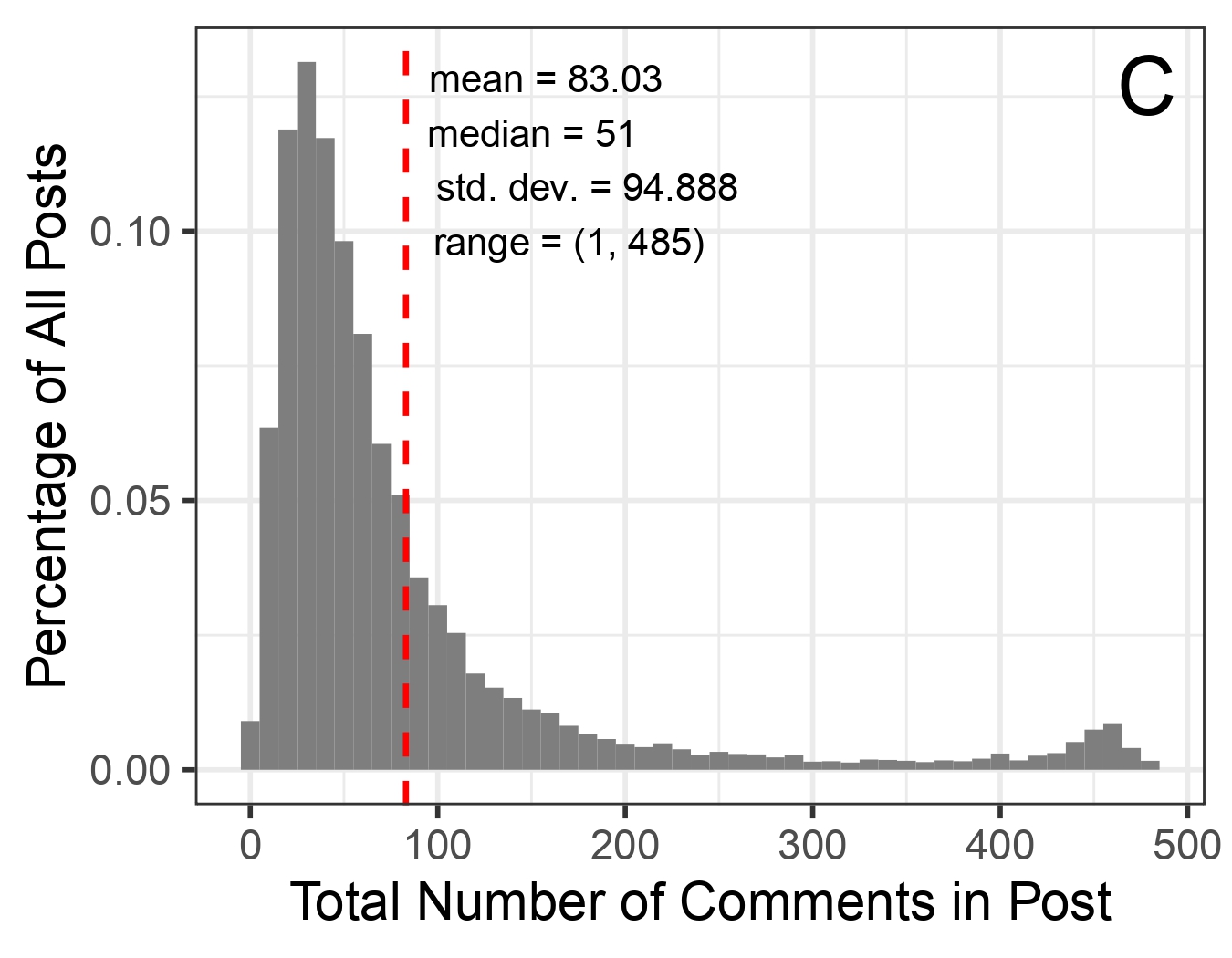 Political Argumentation and Attitude Change in Online InteractionsIsaac D. Mehlhaff
Political Argumentation and Attitude Change in Online InteractionsIsaac D. MehlhaffPrevailing theories of public opinion and political psychology hold that human reasoning is biased and lazy, which suggests it is ill-suited to help ordinary citizens engage meaningfully with politics. In contrast, I contend that the biased and lazy nature of reasoning is precisely what gives citizens the tools to think through political issues and update their attitudes in response to argumentative exchanges. To test these hypotheses, I train a series of deep neural networks to classify textual inputs on several characteristics of discussion and argumentation. I use these classifiers to annotate over one million comments from the Reddit social media platform and show that attitude change is substantially more likely to result from argumentative exchanges rather than more contemplative ones. Results suggest that under the right conditions, humans can be quite skilled political reasoners.
@misc{Mehlhaffreddit, title = {Political {{Argumentation}} and {{Attitude Change}} in {{Online Interactions}}}, author = {Mehlhaff, Isaac D.}, }


